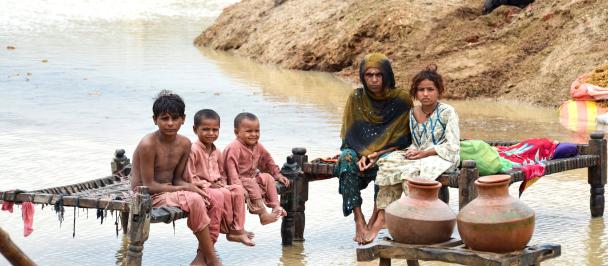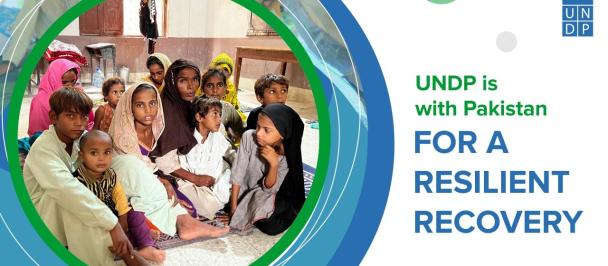Dumping site at Rahim Yar Khan.
Till the late 80’s, our elders used to go shopping with cloth bags made at home in different colors, materials, and sizes. One could simply not visit market without one of these thailas (bags). We would also take our own utensils to fetch milk and yogurt from the market. These utensils would also introduce one’s social standing or social status as well. For instance, financially secure families used bronze and silver utensils whereas the rest relied on use of iron utensils.
Plastic pollution at Deosai Plains.
And then plastic came and took all this away with its utility, ease of use and low cost. It was a revolution in real sense. Cloth bags made at home became obsolete and our metal vessels, which were handed over through generations, were put into dark stores or simply sold off just like old cameras with emergence of new digital technologies. It was much later that we became aware that it takes hundreds of years for just a single plastic bag to decompose properly.
UNDP has been at the forefront in spreading awareness and making efforts to reduce, reuse and recycle different types of plastics and make a lasting impact for future generations. With Global Water Challenge and The CocaCola Foundation’s support under the New World Programme, UNDP’s Environment and Climate Change Unit in collaboration with UNESCO and Pakistan Science Foundation has been organizing awareness sessions at different academic and research institutions in Islamabad. Students especially show keen interest for reduction in use of plastic.
Prototype made by students of International Islamic University.
2021 saw three competitions which included essay writing, poster designing and trash to model. The purpose of these competitions was to sow a sense of importance and urgency in alternate usage of plastics already present in our surroundings. Five universities in Islamabad[1] NUST, CUST, PIEAS, IST and IIUI have developed low-cost plastic recycling solutions which use plastic waste and transform it into scalable products like plastic tiles (which can be used in pavements, footpaths, and garages) and filaments that can be used in 3D printers.
Low cost plastic recycling solution to transform plastic waste into filament developed by students of Pakistan Institute of Engineering and Applied Sciences (PIEAS).
The products produced by these prototypes are very impressive and hold the potential to be used on industrial level in near future. “The challenging part of developing the solution was the selection of appropriate raw material. We adopted the Hit and Trial method and concluded that the machine works best with PPE and HDPE as raw material”, said Abdul Rauf, researcher from CUST.
Tiles and plastic filaments made from plastic wastes which can be used in pavements and 3D printing.
Plastic is here to stay. It depends on how we tackle this wicked problem. We can either ignore it, or act responsbiliy and recycle it back into the economy.
***
Story by: Shuja Hakim, Communications Officer, Communications Unit, UNDP Pakistan
Edited by: Ayesha Babar, Communications Analyst & Head of Communications Unit, UNDP Pakistan
[1] National University of Sciences and Techbology (NUST); Capital University of Science and Technology (CUST); Pakistan Insitiute of Engineering and Applied Sciences (PIEAS); International Islamic University Islamabad (IIUI)); Institute of Space Technology (IST).

 Locations
Locations






